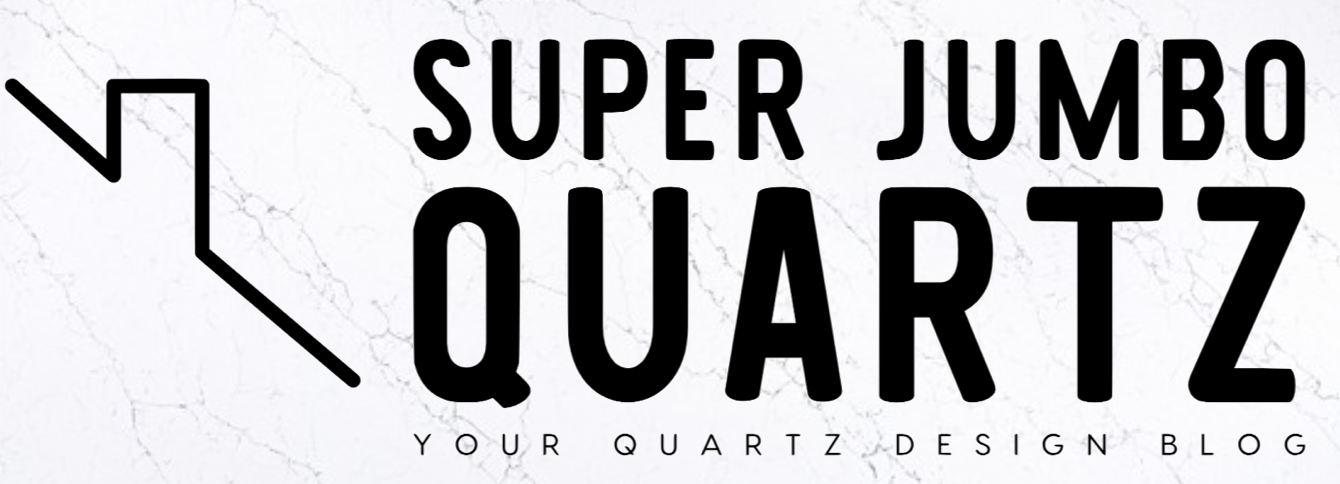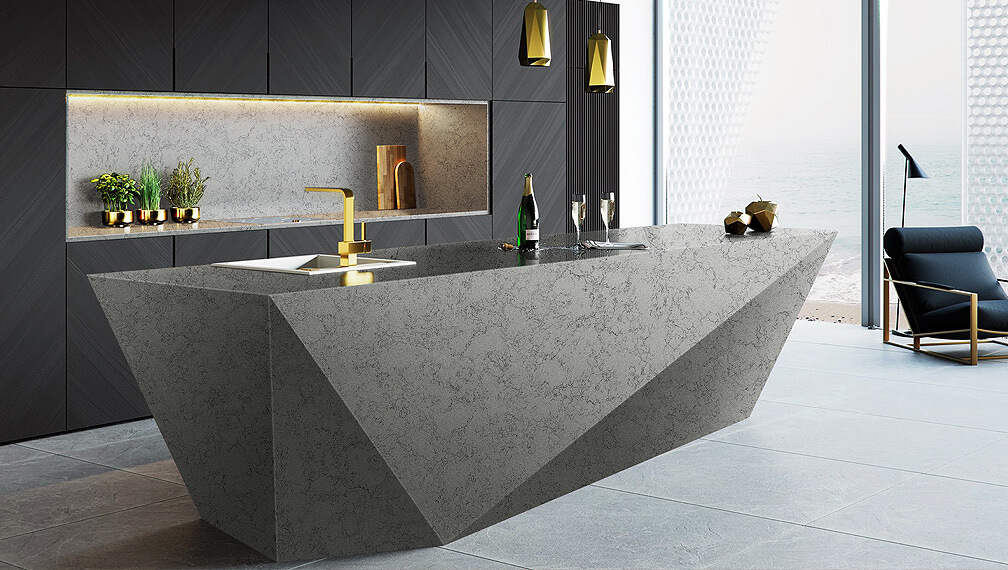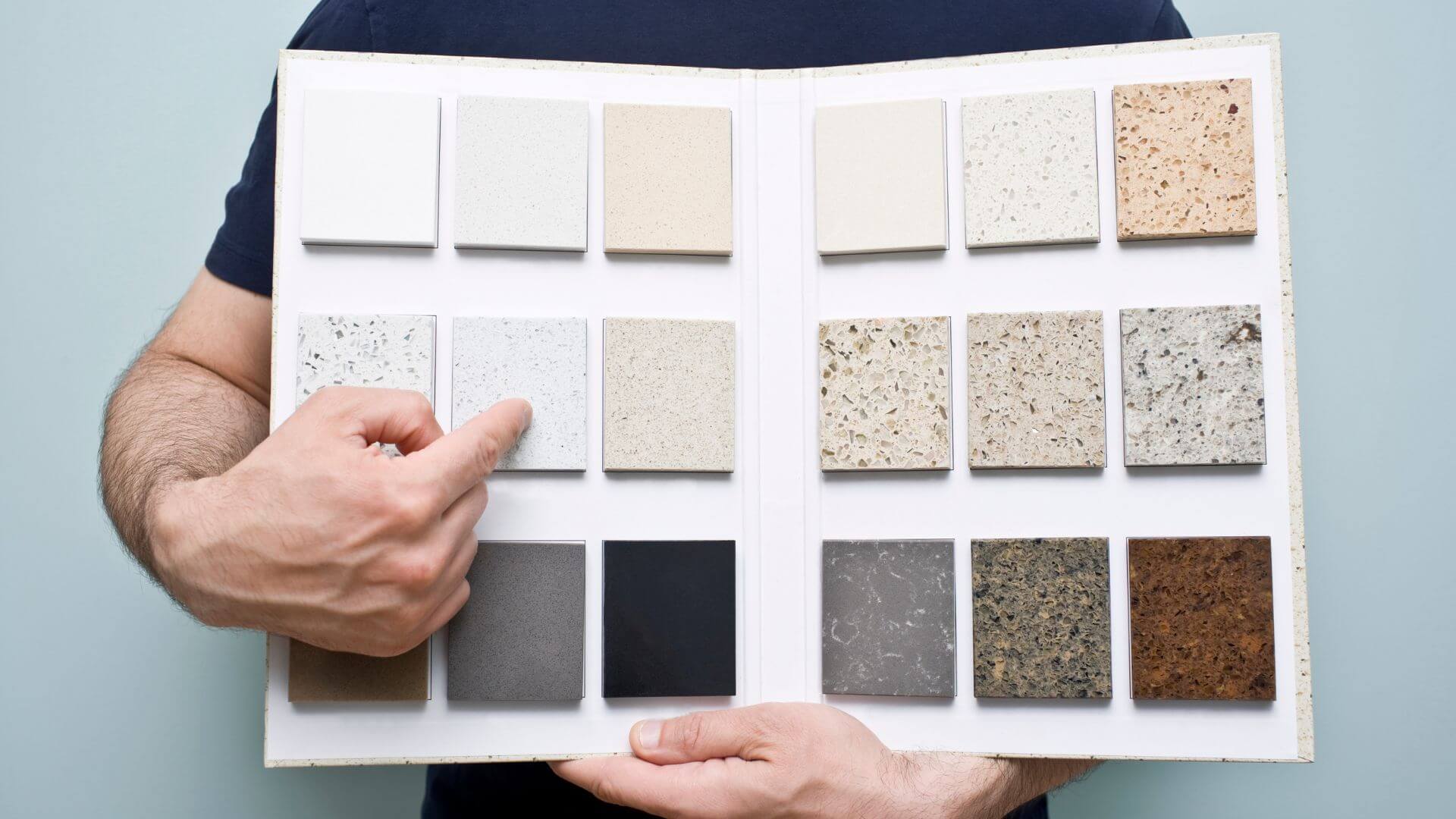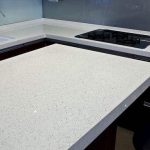In the ever-evolving world of home design, engineered quartz has emerged as a game-changer in the realm of countertops. With its unparalleled durability, stunning aesthetics, and low maintenance requirements, this innovative material has quickly become the go-to choice for homeowners and designers alike.
Engineered quartz is a man-made product and that’s why it is also called as man made quartz that combines natural quartz with resin, resulting in a surface that is not only beautiful but also resistant to scratches, stains, and heat. But its benefits extend far beyond the kitchen. As the use of man made quartz continues to grow, it has found its way into other areas of the home, such as bathroom vanities, fireplace surrounds, and even wall cladding.
With its versatility and limitless design possibilities, man made quartz countertops are undoubtedly the future of countertops and beyond. So, whether you are looking to revamp your kitchen or add a touch of elegance to your bathroom, quartz is the perfect choice to elevate your home’s style and functionality.
Table of Contents
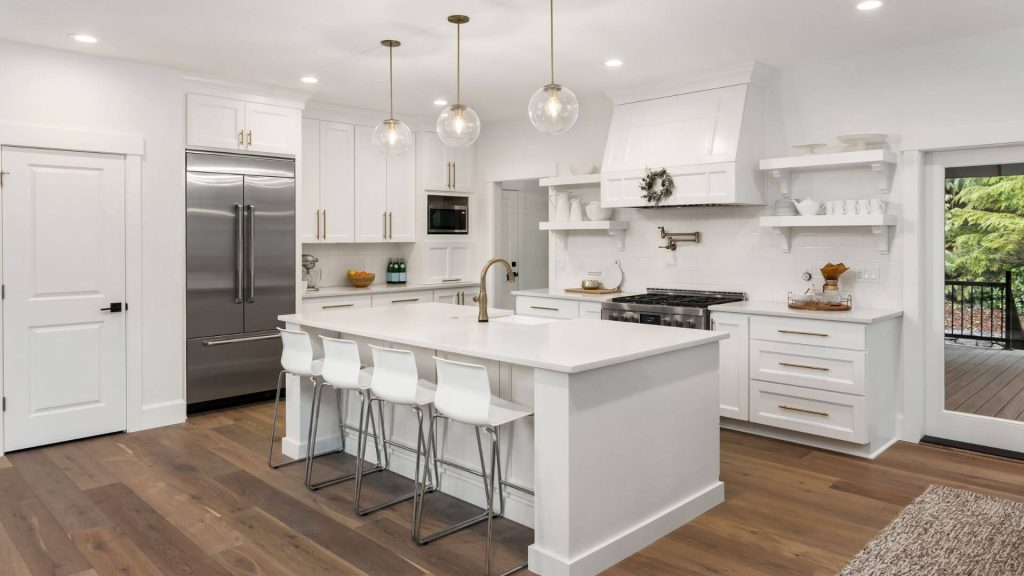
What is Engineered Quartz?
Engineered quartz is a composite material made from natural quartz crystals, pigments, and resins. It is manufactured by combining approximately 90 to 93% ground quartz powder (which is the main raw material) and 7 to 10% of resins and other pigments. The mixture is then compacted under extreme pressure and heated to create a solid, non-porous surface. Then it is polished to give it a glowing shine.
The use of natural quartz as a raw material in man made quartz countertops gives it a unique combination of strength and beauty. Quartz is one of the hardest minerals on Earth (Hardness Rank of 7 at Mohs Scale), making quartz countertops highly resistant to scratches and chips. Additionally, the resin used in the manufacturing process are a petroleum by-product which adds elasticity, making the countertops less prone to cracking.
Quartz countertops are available in a wide range of colors, patterns, and finishes, making it easy to find the perfect match for any design style. Whether you prefer a classic, marble-like appearance or a bold, modern look, there is an quartz countertop that will suit your taste.
Advantages of Quartz Countertops
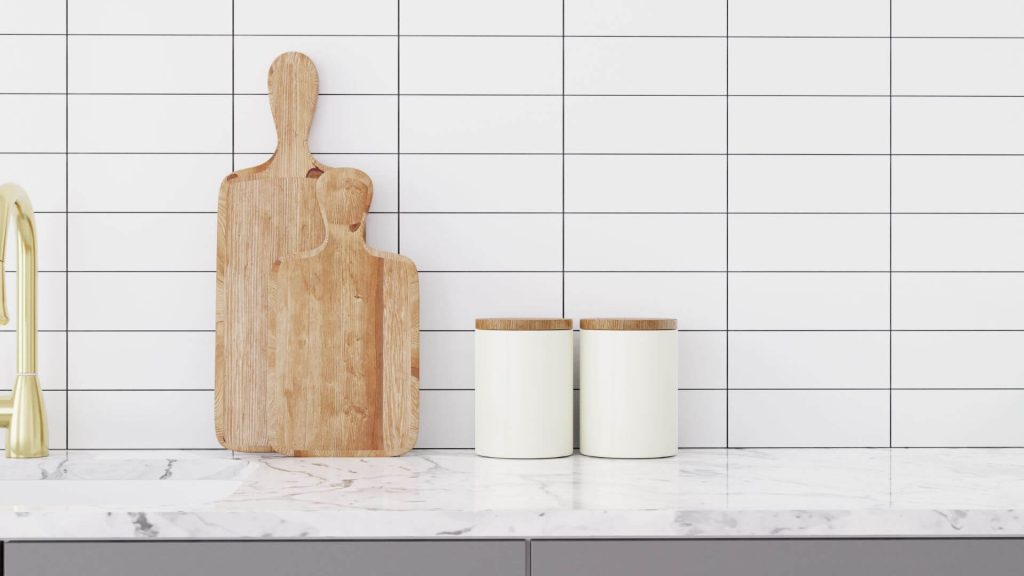
Quartz countertops offer numerous advantages over other countertop materials, making them an attractive choice for homeowners and designers. Here are some of the key benefits:
1. Durability: Quartz countertops are highly durable and resistant to scratches, stains, and heat. They can withstand the demands of daily use without showing signs of wear and tear.
2. Low Maintenance: Unlike natural stone countertops, quartz countertops do not require regular sealing or polishing. They are easy to clean and maintain, requiring only a mild detergent and water, and a soft cloth or paper towel is good to clean it. Note that any cleaning agent which has bleach in it is not recommended to clean the quartz countertop.
3. Non-Porous: Quartz countertops are non-porous, meaning they do not absorb liquids or harbor bacteria. This makes them hygienic and easy to keep clean, making them an excellent choice for kitchens and bathrooms.
4. Versatility: With a wide range of colors, patterns, and finishes available, quartz countertops offer endless design possibilities. Whether you prefer a sleek, minimalist look or a bold, statement-making surface, there is an quartz countertop that will suit your style.
5. Consistency: Unlike natural stone, which can vary in color and pattern, quartz countertops offer a consistent and uniform appearance. This allows for easier matching and ensures a cohesive look throughout your space.
6. Book-Match Option: There is a new trend of Book-Match quartz which you can use in the bathroom or large living room beside the fireplace.
Comparison between Man Made Quartz and Natural Stone Countertops
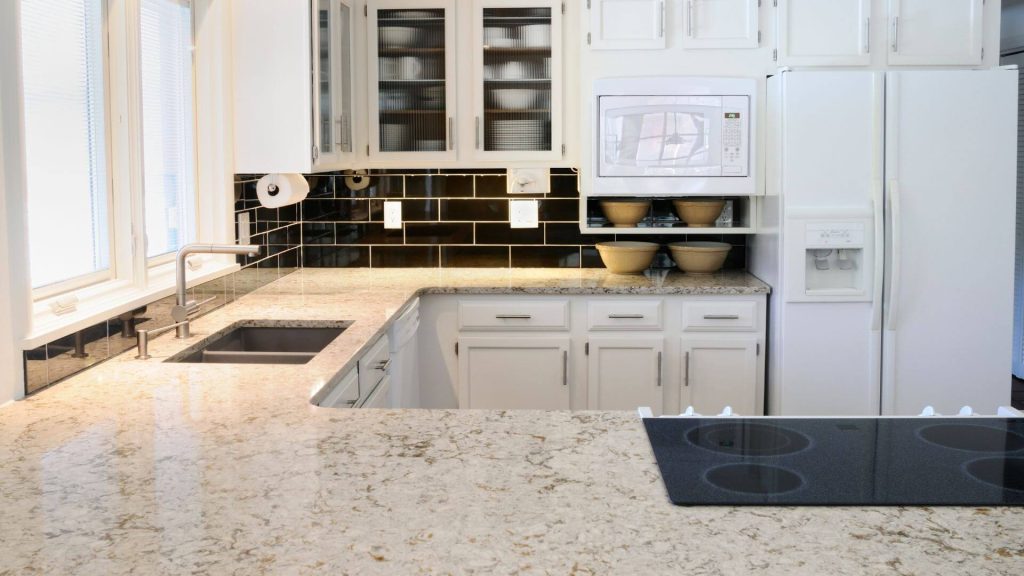
While natural stone countertops have long been a popular choice, quartz has gained significant traction in recent years. Let’s compare the two to understand why man made quartz has become the preferred option for many homeowners and designers.
Appearance and Variety
Natural stone countertops, such as granite or marble, offer a unique and natural beauty. Each slab is one-of-a-kind, with its distinct color variations and patterns. However, this can also make it challenging to match multiple slabs or create a consistent look throughout a space.
Man made quartz, on the other hand, offers a wide range of colors, patterns, and finishes. Manufacturers can create quartz slabs that mimic the look of natural stone, including the popular marble and granite patterns. This allows for greater design flexibility and consistency in appearance.
Durability and Maintenance
Natural stone countertops are generally durable and can withstand everyday use. However, they are more prone to chips, cracks, and stains compared to quartz. Natural stone countertops require regular sealing to maintain their integrity and prevent staining.
Quartz countertops, on the other hand, are highly durable and resistant to scratches, stains, and heat. They require minimal maintenance and do not need to be sealed. This makes them a more practical choice for busy households.
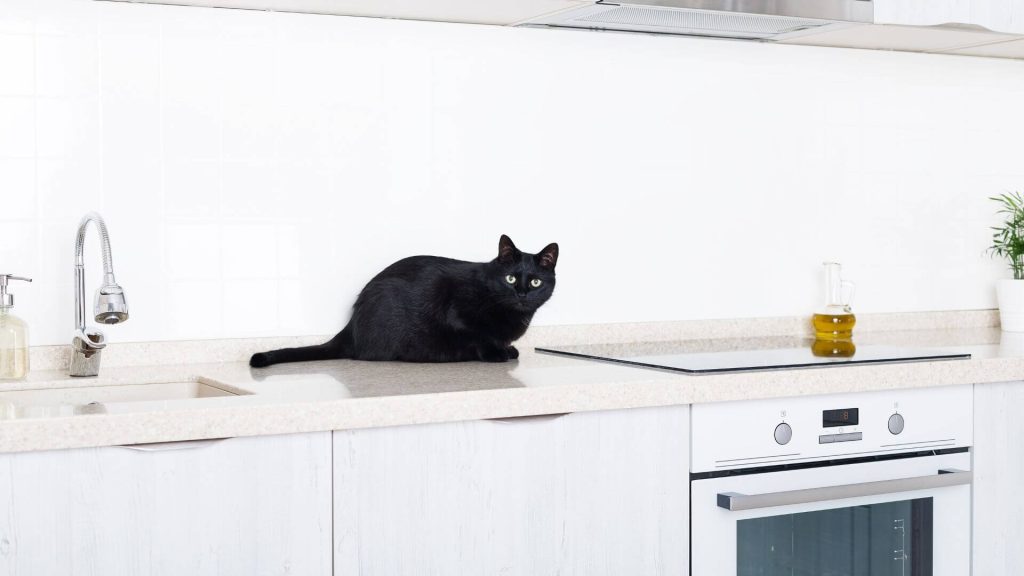
Hygiene and Cleanliness
One of the advantages of quartz countertops is their non-porous nature. This means they do not absorb liquids or harbor bacteria, making them hygienic and easy to clean. Natural stone countertops, on the other hand, can be porous and may require more effort to keep clean and germ-free.
Cost
Natural stone countertops can vary significantly in price, depending on the type of stone and its availability. Rare or exotic stones can be quite expensive, making natural stone countertops a higher-end option.
Quartz countertops are generally more affordable than rare or exotic natural stones. While they may have a higher upfront cost than some lower-end natural stone options, their durability and low maintenance requirements can make them a cost-effective choice in the long run.
There is another piece of content “Manufacturing Process of Quartz Slabs” which we felt to be added here but seeing the length of this article we have skipped it but If you want to know more about it, then kindly click here, where we have covered all the possible points for your understanding.
Different Styles and Patterns of Man Made Quartz
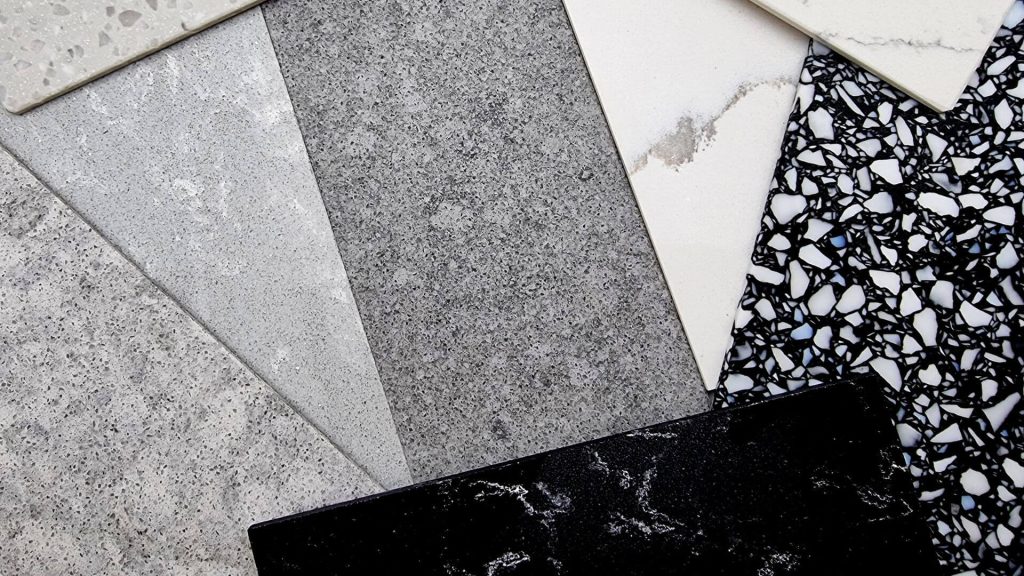
Engineered quartz offers an extensive range of styles, patterns, and finishes, allowing homeowners and designers to find the perfect match for their design vision. Here are some popular styles of quartz countertops:
1. Marble-Like: Quartz can mimic the luxurious look of natural marble, with its elegant veining and timeless appeal. Marble-like quartz countertops offer a classic and sophisticated aesthetic without the high maintenance requirements of natural marble.
2. Granite-Like: For those who prefer the bold and natural look of granite, quartz countertops can replicate the patterns and colors found in natural granite. This allows for a durable and low-maintenance alternative to natural stone countertops.
3. Solid Colors: Quartz countertops are also available in a wide range of solid colors, from neutral tones to vibrant hues. Solid-colored quartz countertops can add a pop of color or create a sleek and minimalist look, depending on the design preferences.
4. Patterned: In addition to replicating the patterns of natural stone, man made quartz can also feature unique and eye-catching patterns. From subtle and delicate veining to bold and dramatic swirls, patterned quartz countertops can create a statement-making focal point in any space.
The variety of styles and patterns available in engineered quartz ensures that there is a countertop option to suit every design style and personal preference.
Maintenance and Care for Quartz Countertops

One of the many advantages of quartz countertops is their low maintenance requirements. To keep your countertops looking their best, follow these simple maintenance tips:
1. Daily Cleaning: Wipe down your quartz countertops with mild detergent and warm water using a soft cloth or sponge. Avoid abrasive cleaners or scrub brushes, as they can dull the surface.
2. Dealing with Spills: Clean up spills promptly to prevent staining. Most spills, such as coffee or wine, can be easily wiped away with a damp cloth. For stubborn stains, use a non-abrasive cleaner specifically designed for engineered quartz.
3. Avoid Heat Damage: While engineered quartz is heat-resistant, it is still best to use trivets or hot pads when placing hot pots or pans on the countertops. Extreme and prolonged heat exposure can potentially damage the resin used in the manufacturing process.
4. Prevent Scratches: While engineered quartz is highly scratch-resistant, it is still best to use cutting boards or chopping blocks when preparing food. Avoid using sharp objects directly on the countertops to prevent any potential scratches. You can test is though for your satisfaction but intentionally using it is not recommended.
5. Avoid Harsh Chemicals: Avoid using abrasive cleaners, bleach, or harsh chemicals on your quartz countertops. These can damage the surface and compromise its appearance.
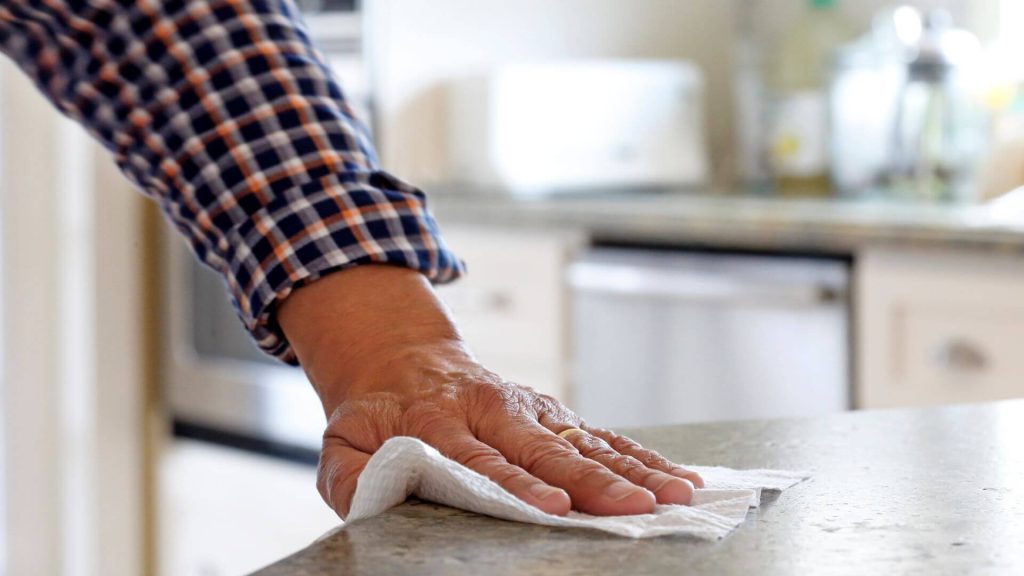
By following these simple care and maintenance tips, you can keep your quartz countertops looking beautiful and pristine for years to come.
Other Applications of Engineered Quartz Beyond Countertops
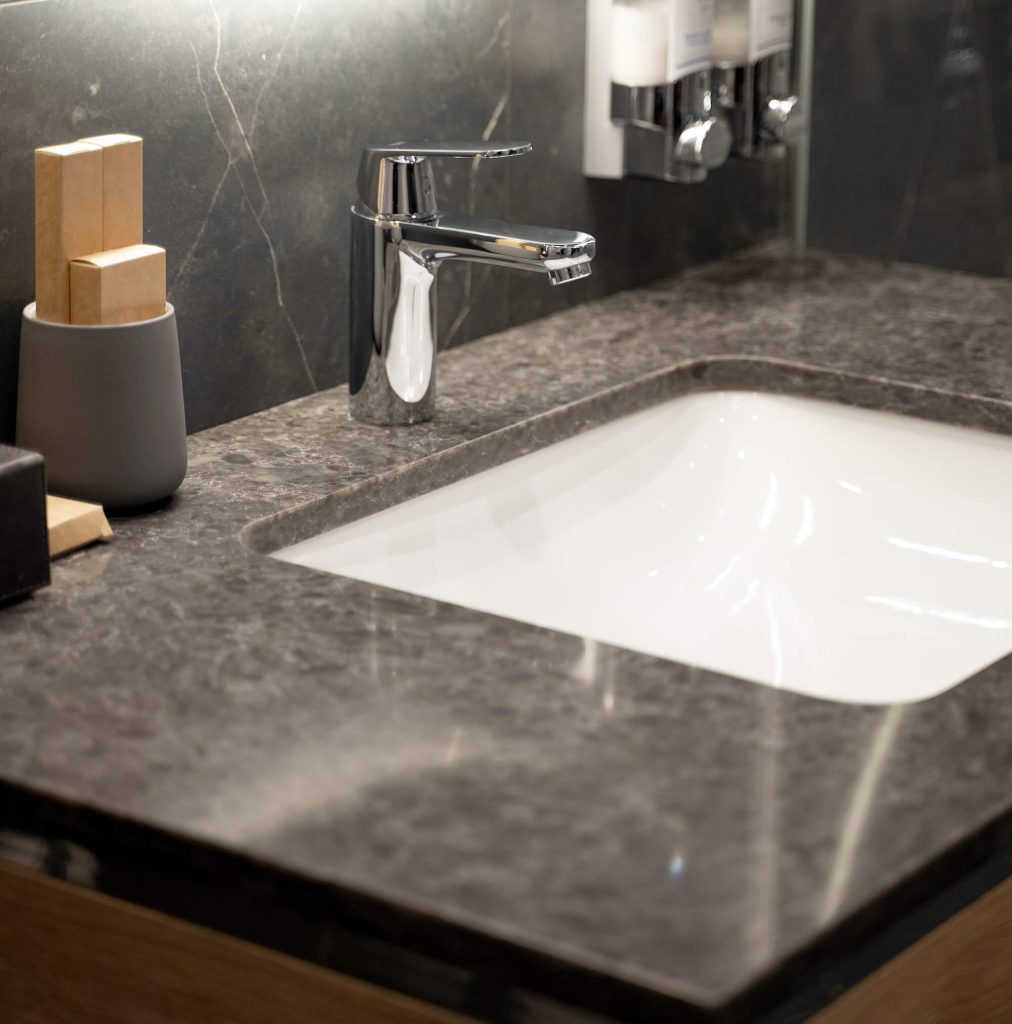
While engineered quartz is most commonly associated with kitchen and bathroom countertops, its versatility allows for a wide range of applications throughout the home. Here are some other areas where engineered quartz can be used:
1. Bathroom Vanities: Engineered quartz is an excellent choice for bathroom vanities, offering durability, low maintenance, and a wide range of design options. Whether you prefer a sleek and modern vanity or a more traditional look, engineered quartz can elevate the style of your bathroom.
2. Fireplace Surrounds: Engineered quartz can add a touch of elegance and sophistication to fireplace surrounds. Its heat-resistant properties make it a safe and practical choice for this application.
3. Wall Cladding: Engineered quartz can be used as a wall cladding material, adding texture and visual interest to any room. Whether you want to create an accent wall or cover an entire room, engineered quartz can transform the look and feel of a space.
4. Tabletops and Desks: Engineered quartz can be used to create stunning tabletops and desks. Its durability and resistance to scratches and stains make it a practical choice for high-traffic areas.
The versatility of engineered quartz opens up a world of design possibilities beyond countertops, allowing homeowners and designers to create cohesive and stylish spaces throughout their homes.
Cost Considerations When Choosing Engineered Quartz
When considering quartz countertops, it is essential to factor in the cost. While engineered quartz offers numerous benefits, it is generally more expensive than some other countertop materials.
The cost of quartz countertops can vary depending on factors such as the brand, color, pattern, design and thickness. Additionally, the complexity of the installation and the size of the area to be covered can also impact the overall cost.
It is recommended to obtain multiple quotes from reputable suppliers and contractors to compare prices and ensure you are getting the best value for your investment. Remember to consider the long-term benefits and durability of engineered quartz, as it can save you money in maintenance and replacement costs over time.
Conclusion
Engineered quartz has revolutionized the world of countertops and beyond. With its unmatched durability, stunning aesthetics, and low maintenance requirements, it has become the go-to choice for homeowners and designers alike.
Not only is engineered quartz an excellent option for kitchen countertops, but it has also found its way into other areas of the home, such as bathroom vanities, fireplace surrounds, and wall cladding. It’s versatility and limitless design possibilities make it the future of home design.
As you embark on your home improvement journey, consider the many advantages of engineered quartz. From its durability and low maintenance requirements to its wide range of styles and patterns, engineered quartz is the perfect choice to elevate your home’s style and functionality. Choose quartz countertops, and you’ll enjoy a beautiful and functional surface that will stand the test of time.
FAQs Section of this article
1. What is engineered quartz?
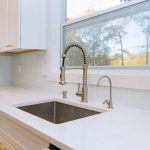
Engineered quartz is a composite material made from natural quartz crystals, pigments, and resins. It’s manufactured by combining about 90-93% ground quartz powder with 7-10% resins and additives.
2. What are the advantages of quartz countertops?
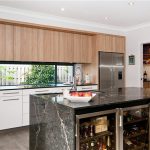
Quartz countertops offer several advantages, including durability, low maintenance, non-porous nature, versatility in design, consistency in appearance, and resistance to scratches, stains, and heat.
3. How is man made quartz different from natural stone countertops?
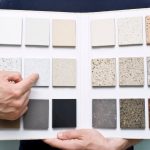
Man made quartz offers greater design flexibility and consistency in appearance compared to natural stone countertops. It’s also more durable, requires less maintenance, and is non-porous, making it hygienic.
4. How does the appearance of quartz countertopscompare to natural stone?
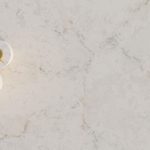
Natural stone countertops have a unique and natural beauty, while quartz countertops can replicate the appearance of natural stone, including marble and granite patterns. This allows for greater design flexibility.
5. What are the maintenance requirements for quartz countertops?

Quartz countertops are low maintenance. They can be cleaned with mild detergent and water. Spills should be cleaned promptly, and heat exposure should be limited. Avoid harsh chemicals and abrasive cleaners.
6. Can man made quartz be used for applications beyond countertops?
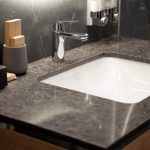
Yes, quartz countertops can be used for various applications beyond countertops, such as bathroom vanities, fireplace surrounds, wall cladding, tabletops, and desks.
7. What is the cost of quartz countertop compare to other countertop materials?
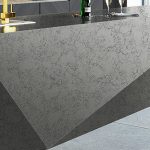
Quartz countertop is generally more expensive than some other countertop materials like Marble & Granite. Costs can vary based on factors like brand, color, pattern, design, thickness, installation complexity, and size of the area.
8. What is the manufacturing process of man made quartz?
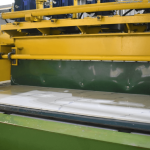
The manufacturing process involves combining natural quartz crystals with resins and additives, compacting the mixture under pressure, and then heating it to create a solid, non-porous surface.
9. What are the popular styles and patterns of quartz countertops?

Quartz countertops come in various styles, such as marble-like, granite-like, solid colors, and patterned options, offering something for every design preference.
10. Is quartz countertop heat-resistant?
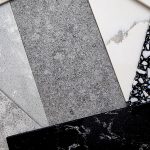
Yes, man made quartz is heat-resistant, but it’s still recommended to use trivets or hot pads to prevent potential damage from extreme and prolonged heat exposure.
